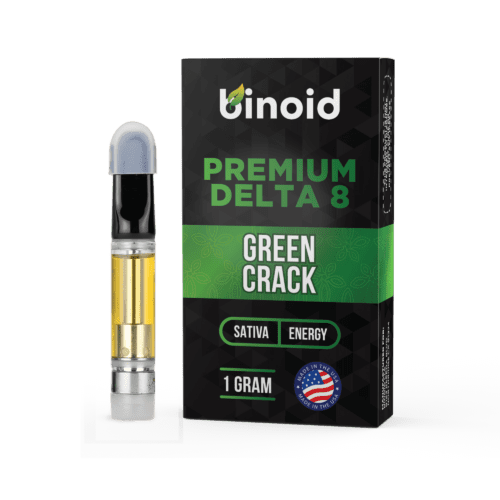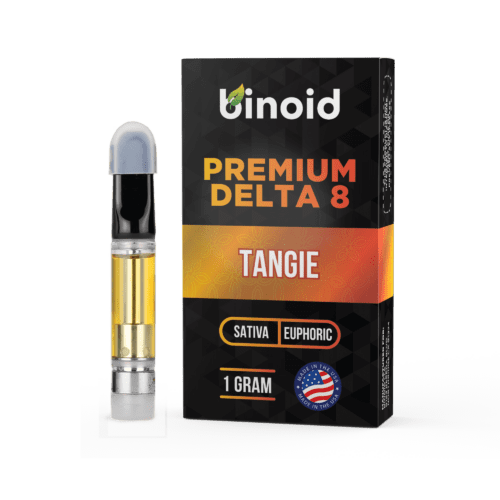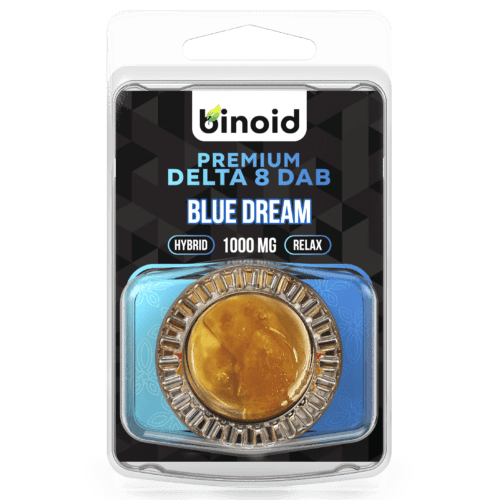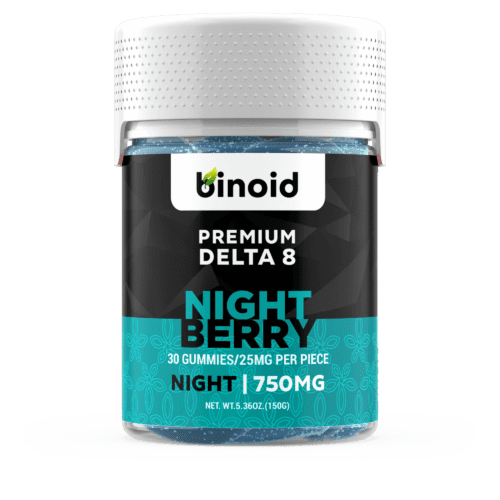Vertigo is a condition that’s often overlooked in its ability to be enormously disruptive to a person’s life. The dizzy spells associated with vertigo can be debilitating, especially if the condition is chronic, with unpredictable bouts occurring at often-inconvenient times. Vertigo is, fortunately, treatable, and easy to diagnose, so those who do suffer from a chronic form of the condition can maintain hope that their symptoms will ease.
Aside from the prescription-based treatments for vertigo, and the adjustments of one’s lifestyle that may be necessary, there is delta 8 THC, which more sufferers are turning to for a holistic form of relief. Delta 8 is a minor cannabinoid in the hemp plant that has been studied for its distinctive delta 8 benefits and properties pertaining to the nervous system. As a cannabinoid, it works with the body in a highly unique way, through cannabinoid receptors that affect specific functions that may relate to vertigo.
To Buy Delta 8 THC Products Click Here
Recommended products
What is Vertigo?
Again, vertigo is a condition in which a person experiences dizzy spells, which can cause them to feel like the room is spinning. These dizzy spells can be mild to severe, and can throw a person off balance, and even lead to feelings of motion sickness. The length of time during which a vertigo episode can occur varies on a case-by-case basis, as can the frequency of episodes.
Vertigo can affect a person of any age, although it’s incredibly rare for a child to experience it. It tends to first affect a person once they reach their 20s, and the likelihood of having episodes becomes more likely as a person ages. Vertigo can also emerge to chronic due to certain conditions and can become dangerous because it can lead to falls that can cause fractures of the bones, which become more fragile as we get older.
Why Does Vertigo Occur?
Vertigo is usually caused by an issue with the inner ear, which maintains our sense of balance and equilibrium. Isolated cases of vertigo can be caused by consuming too much alcohol or another kind of intoxicating substance, experiencing an injury to the head or ear, or being dehydrated. Those with chronic vertigo almost always have a specific condition that is causing the vertigo to occur.
- Vestibular Neuritis or Labyrinthitis: An inflammatory condition in which the inner ear and surrounding tissue becomes inflamed. It is usually due to a viral infection which causes the immune system to send cytokines to the area, which leads to swelling.
- Meniere’s Disease: A disorder that causes fluid to accumulate in the inner ear, creating a feeling of pressure. It’s often accompanied by tinnitus (ringing in the ears) as well as issues with hearing.
- BPPV (Benign Paroxysmal Positional Vertigo): Chronic condition in which calcium particles accumulate inside the inner ear.
Recommended products
How Can Vertigo Be Treated?
Many people find that vertigo goes away on its own, as the brain intelligently readjusts itself in a way that compensates for the disruption of balance. Our brains can adapt to vertigo, rediscovering its sense of equilibrium in spite of the circumstances causing it.
Vestibular rehabilitation is a form of physical therapy that retrains the senses to maintain a sense of balance and spatial awareness. This can help a person feel less dizzy during bouts of vertigo. For those with BPPV, a doctor or a physical therapist can offer simple head movements that redistribute calcium particles that have built up in the inner ear.
There are also medications for vertigo, that can minimize the dizziness and feelings of motion sickness that can occur during episodes. If vertigo is caused by inflammation of the inner ear, anti-inflammatory drugs may be prescribed.
Surgical procedures may be required for those who have vertigo due to an injury, in order to repair or reconstruct the inner ear.
Delta 8 THC for Vertigo Dosage Chart and Guide
#1: Minor Vertigo Delta 8 THC Dosing (Low Tolerance): 5mg-8mg per use
#2: Intermediate Vertigo Delta 8 THC Dosing (Medium Tolerance): 8mg-15mg per use
#3: Severe Vertigo Delta 8 THC Dosing (High Tolerance): 15mg-30mg+ per use
The overall dosage range for those with vertigo is between 5 and 30 milligrams, and is largely tolerance-dependent, as delta 8’s intoxicating effects can be too much for someone who is totally new to the cannabinoid. Taking too much delta 8 can lead to a feeling of being “too high,” along with dry mouth, dry eyes, and headache, especially when using low-quality delta 8 products from untrustworthy brands.
At Binoid, we offer lab-tested, properly extracted delta 8 formulas that can be used on a daily basis in the dosage amounts suggested above.
Recommended products
Delta 8 THC, Vertigo, and Your Endocannabinoid System
Because delta 8 THC is a minor cannabinoid in the hemp plant, it can be extracted and concentrated so that we can experience more potent forms of its properties. To understand what delta 8 may be able to offer to vertigo sufferers, we need to recognize how cannabinoids work in the body. Cannabinoids like the ones found in hemp are used by the body’s endocannabinoid system to bind to cannabinoid receptors located throughout, with each receptor using cannabinoids to regulate specific bodily processes.
Delta 8 is a unique cannabinoid in that it binds exclusively to CB1 receptors found in the brain, which dictate the function of the nervous system. Vertigo is a disorder of the nervous system, and so delta-8 may offer particularly strong properties to this particular condition.
To maximize delta8’s ability to potentially help with vertigo, it’s important that you take a product with as few ingredients as possible so that the delta 8 is not highly diluted.
Did You Know: Applying delta-8 product topically to the body will not be useful to those with vertigo, as topicals work with the muscles, joints, and skin.
As of now, there have been no studies specifically on what delta 8 can do for vertigo. However, one piece of data found that chemotherapy patients who were given doses of delta 8 experienced less dizziness and nausea.
Taking Delta 8 THC for Vertigo: What Else Do You Need to Know?
Before beginning delta 8, it is important to talk about it with your doctor and/or specialist who is treating you for the condition. Besides the fact that they may be able to offer some guidance on taking it, they can determine whether or not delta-8 may interact with any medications that you are on. Delta 8 THC and other hemp cannabinoids may suppress the body’s ability to metabolize certain drugs.
To experience the best results, take delta 8 daily as the compound works cumulatively. Over time, your tolerance to its psychoactive properties should increase. After taking delta-8, refrain from driving or operating heavy machinery.
Recommended products
What are the Best Delta 8 THC Products for Vertigo?
If you have a desire to use delta 8 as a natural means for finding relief from vertigo, it’s important to only buy from a trusted company that makes lab-tested, pure, and clean delta 8 products.
Now, the best delta 8 THC products for vertigo are below, in the order of usefulness:
- Delta 8 THC Capsules
- Delta 8 THC Tinctures
- Delta 8 THC Gummies
- Delta 8 THC Vapes & Dabs
Delta 8 capsules and tinctures offer the purest forms of delta 8 due to having minimal ingredients. Gummies, of course, offer a great taste along with delta 8, but may require a bit more experimentation due to the variety of formulas out there. Vapes are ideal for getting the effects of the compound in the body within a couple of minutes, but the effects are very short-lived. Binoid carries delta 8 capsules, tinctures, gummies, and even vapes that can all be useful to those suffering with the condition.












